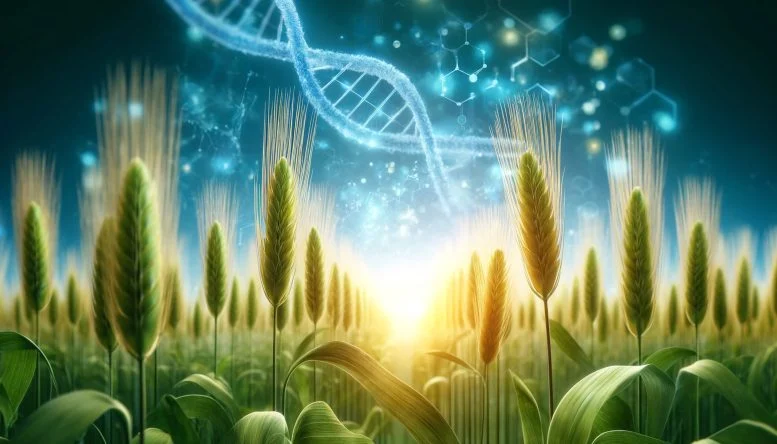A research project conducted at the University of Bonn reveals differences in plant growth under organic and conventional farming methods. Long-term studies at the University of Bonn have shown that plants can genetically adapt to certain conditions of organic farming. In the study, researchers grew barley in two adjacent fields, one using traditional farming methods and the other using organic methods.
For over 20 years, organic barley has been enriched with specific genetic material that differs from the comparative crop. The results show, among other things, how important it is to breed varieties specifically for organic farming. The results are published in the journal Agricultural Science for Sustainable Development.
In the late 1990s, Professor Dr. Jens Leon began an experiment at the University of Bonn that he knew would last a long time. The research group wanted to investigate the effects of agricultural conditions on the genetic material of plants. To this end, they conducted a comprehensive, long-term study over 23 years at the Institute of Crop Production and Resource Conservation (INRES). “For the first time, we crossed the wild form with a high-yielding barley to increase genetic diversity,” says Leon. “We then planted these populations in two adjacent fields so that the barley would grow in the same soil and climate.”
The only difference was the farming method. Traditional agriculture was used in one of the areas, where researchers used pesticides to control pests, chemicals to kill weeds, and mineral fertilizers to provide a good nutrient supply. In another area, researchers applied a more ecological approach: avoiding the use of pesticides, controlling weeds using mechanical methods, and fertilizing the soil with barnyard manure. A portion of the grain was saved each fall for seeding the fields the following spring, using organic grain in the organic field and conventionally grown barley in the comparison field. Leon’s colleague, Dr. “But we did not select the grains according to any specific characteristics, we just randomly selected a small portion of the crop,” emphasizes Michael Schneider.
Analysis of genome evolution in frame-by-frame footage
The researchers also analyzed the genomes of conventional and organic plants each year. Each gene can exist in different forms called alleles. For example, the gene responsible for eye color in humans is found in the “brown” and “blue” alleles. The frequency of occurrence of certain alleles in a population may vary over generations. Environmental conditions are one factor that plays an important role in this process: Alleles that allow plants to thrive in the current environment tend to be more common.
The researchers found two interesting trends in their genetic testing: During the first twelve years, the frequency of barley alleles changed in the same way in both areas. Participating in the research, Dr. “Our interpretation of this finding is that the highly diverse populations resulting from crossbreeding with wild barley are adapted to local conditions,” says Aghim Balvora. “Ultimately, factors such as climate, soil and especially day length were the same for both populations.” However, in the following years, the allele frequencies of both cultures gradually differed. In particular, barley grown using organic farming methods developed gene variants (alleles that affect root structure) that were less susceptible to nutrient deficiencies or water scarcity. “One of the reasons for this is probably the large fluctuations in nutrient availability in organic farming,” says Leon.
Genetic heterogeneity facilitates the adaptation process
Conventionally grown barley has also become more genetically homogeneous over time; This means that the genetic material in individual plants grown in the field becomes more similar from year to year. But organic barley remained more heterogeneous. Allele frequencies in organic culture also varied more widely over time. This resulted in some years being extremely positive or negative for some alleles. This may be because environmental conditions fluctuate much more in organic farming than in conventional farming methods: for example, if certain plant diseases are common in a year, plants will rely most on those alleles to protect themselves. Variation in environmental forces acting on plants appears to lead to greater genetic heterogeneity. “As a result, plants are better able to adapt to such changes,” says Leon.
Overall, the results show the importance of growing varieties optimized for organic farming. As their genetic structures adapt to these conditions, they will become stronger and produce higher yields. “Also, when breeding plants, it seems logical to cross them with older or even wild varieties,” explains Leon. “Our data also shows that it may benefit even traditional high-yielding varieties.”
Source: Port Altele
